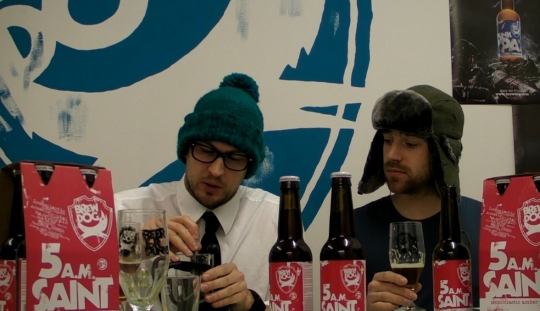The Economics of a Dry Hopped beer
Dry hopping is the process of adding loads of hops to a beer at a low temperature after fermentation. This process is a staple of the US craft brewers but seldom used in Europe.
Because the temperature is very low, dry hopping imparts no hop bitterness but instead an avalanche of aroma and flavour. The mesmerising aroma of our Punk IPA, 5am Saint and Hardcore IPA which explodes out of the glass is due to the dry hopping of these beers.

This is extremely costly to do from a production perspective. Firstly we use mountains of expensive extra hops in the dry hopping process. Secondly it doubles our production time on the beers meaning our production is much less than it could be. Thirdly, we draw the beer from a special valve above the hops and we loose the beer that is left in the tank. Finally, even though the beer is filtered very lightly, the amount of hop particles in the beer make it really tough to filter.

All of which combine to make dry hopped beers insanely expensive to produce, especially on our small scale.
But we don’t care about that. At all. There are plenty of beers on the market made by people trying to keep costs down and cut corners. With BrewDog, you pay a little bit more money for a lot more beer!
We care about making awesome beers; beers packed with flavour, attitude and loads of our favourite hops. Regardless of the cost.

The average monolithic lager is brewed with roughly 12 kilos of malted barley per barrel, the average craft ale (like a 4.5% pale ale) is brewed with around 25 kilos per barrel. At BrewDog, our average beer is made with over 40 kilos of malted barley per barrel. On average we use 25 times more hops as an industrial brewer to make one barrel of BrewDog beer. A lot more beer for just a little bit more money.
We are selfish and make the beers we want to drink ourselves, regardless of the cost of the ingredient or how arduous the process is. Everything we do is to enhance the flavour of our beers and provide an encapsulating, awesome experience for the drinker.

Join the Discussion
Comments (15)